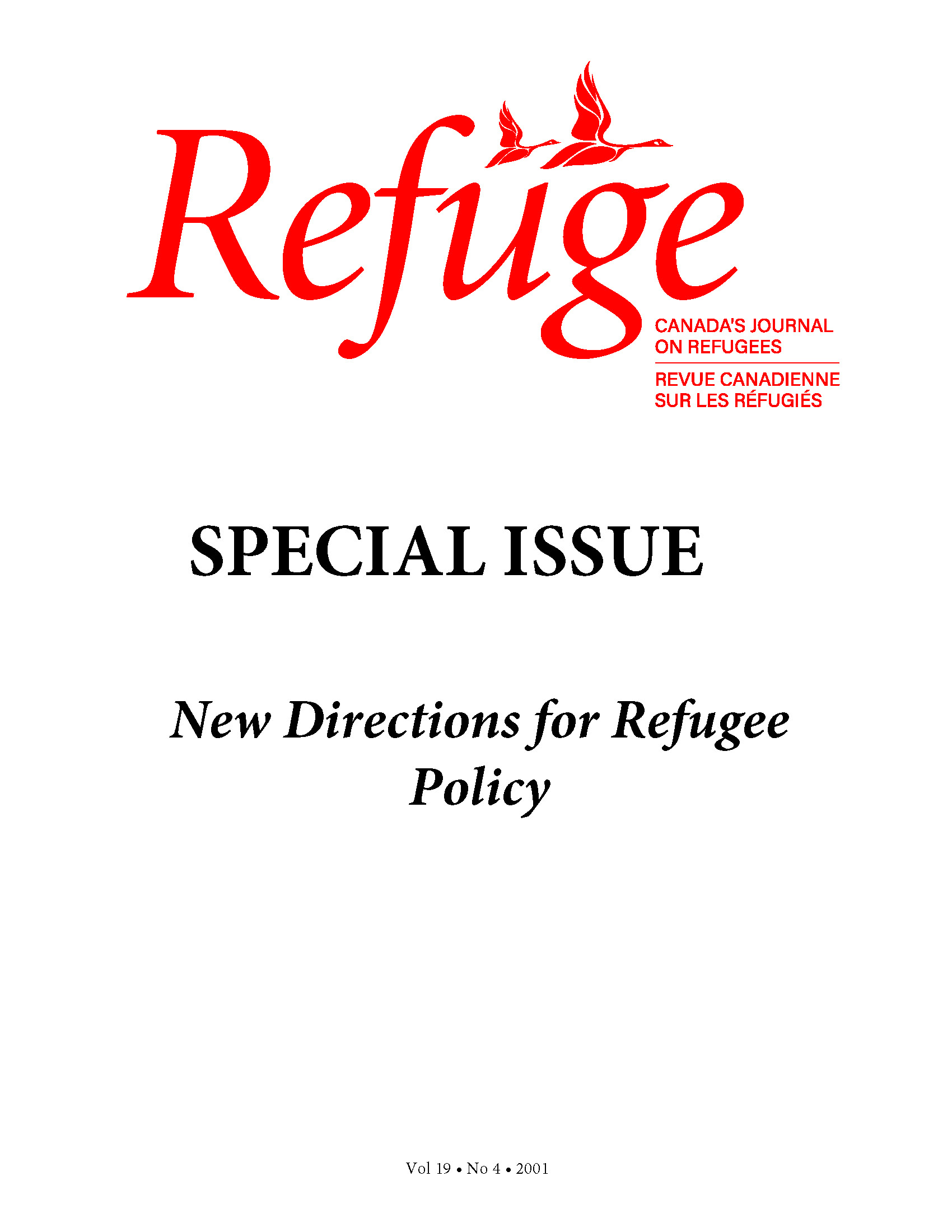Manufacturing “Terrorists”: Refugees, National Security and Canadian - Part 2
DOI:
https://doi.org/10.25071/1920-7336.21221Keywords:
Canada, Immigration Act, law, terrorism, refugees, admissibility, national security, human rightsAbstract
The overarching objective of this paper is to provide a critical appraisal of the anti-terrorism provisions of Canada’s Immigration Act. The impact of these measures on refugees is the primary concern of this inquiry, but the author’s observations are relevant to the situation of other categories of non-citizens as well. Part 1 of the essay, published in the previous issue of Refuge, began by considering international efforts to address “terrorism,” the relevance of international humanitarian law to an assessment of acts of “terror,” and the nature of contemporary discourse on terrorism. The evolution of the current “admissibility” provisions in Canadian immigration law was examined with particular reference to national security threats and “terrorism.” In part 2, the author focuses on the role played by Canada’s Federal Court in legitimizing the national security scheme. The tensions in the current jurisprudence are considered with a more in-depth analysis of Suresh v. Minister of Citizenship and Immigration, a case pending before the Canadian Supreme Court. The paper concludes with suggestions for restoring human rights for refugees while safeguarding a genuine public interest in security.Metrics
Downloads
Published
How to Cite
Issue
Section
License
Copyright (c) 2001 Sharryn J. Aiken

This work is licensed under a Creative Commons Attribution-NonCommercial 4.0 International License.
Refuge authors retain the copyright over their work, and license it to the general public under the Creative Commons Attribution-Non Commercial License International (CC BY-NC 4.0). This license allows for non-commercial use, reproduction and adaption of the material in any medium or format, with proper attribution. For general information on Creative Commons licences, visit the Creative Commons site. For the CC BY-NC 4.0 license, review the human readable summary.







